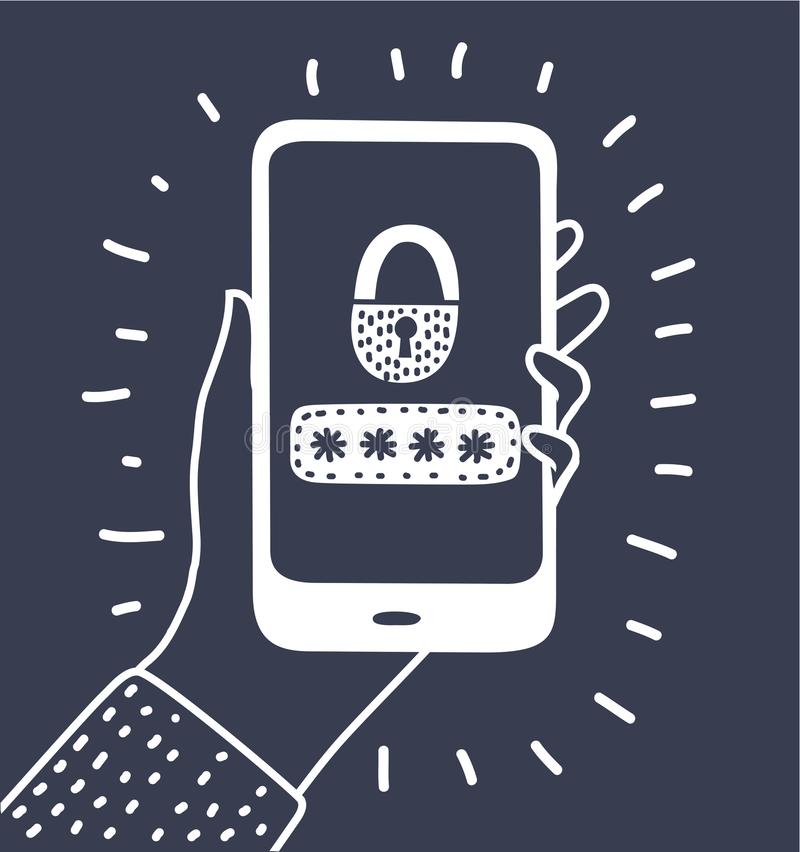These days, our entire lives are largely hinged on our online data and as a result, there has never been such a heavy need for security as much as there is in now in this digital age. Therefore, security is a factor that poses major issues which must be fixed to ensure that your information is protected from malicious entities and to prevent a data breach which could lead to devastating results.
Most applications and websites these days are optimized to prompt users against using weak passwords in order to keep their accounts and information safe, but this alone is not enough of a preventive strategy against a data breach as the prevalence of hackers who use social engineering and malware to invade the privacy of folks online has become rampant. Hence, there is a need to constantly apply updated preventive security measures to keep accounts and information safe. This article additionally covers tips which would be helpful if you keep forgetting your passwords and lose your information or accounts easily as a result.
THESE TIPS COULD BE A GREAT WAY TO GET STARTED
Applying these measures could help significantly boost your online safety if you have a weak password. Let’s get started:
- Invest in a strong password manager application
Forgetting passwords is an issue that is most prevalent amongst older folks yet is as much an issue for people of the younger demographic who just cannot keep a password memorized and run into issues as a result, the best solution for such an issue is to utilize a password manager which does all the work for you by storing your passwords in encrypted files to protect your data. For most modern modules, it takes things a step further by creating a strong enough password for you, which is composed of intricate phrases or characters that cannot be easily guessed. The advantage of using a password manager is it offers multi-factor authentication to add an extra layer of security to your information, thus it is definitely a way to go.
- Avoid relying solely on your browser’s “remember password” function.
While this added password management function on most browsers can be quite convenient, it has a weaker data encryption and thus carries a great deal of risk as hackers can access your accounts by planting malware or cookies which your computer may easily pick up unknown to you while surfing the web, subsequently granting access to a malicious third party which could steal your password and private information directly. Plus, in the event that your device or computer gets stolen, you want to rest assured that your passwords and accounts are not easily accessible as this could lead to great losses.
- Avoid creating passwords with real or personal information about yourself
The days of relying on passwords coined from your birthday or the birthday of a loved one or your name or other personal details are long gone as hackers have evolved significantly to the point of using various tactics such as social engineering to access personal information with which to gain access to private information and such passwords are more likely to be attained. Using repeated words, alphabets or numbers is not safe either as much as you may think it to be clever, it can quite easily be cracked by malicious actors.
Asides using fingerprint security, which is quite effective, another good way to set up a password is to use a good mix of alphanumeric characters with symbols as well as upper- or lower-case alphabets to make the password more difficult to guess as well as lengthier, such passwords are much trickier to steal.
- Avoid using the same password across multiple sites or accounts
While this may offer some advantage in terms of being able to remember a single password across the board, it can lead to a much greater loss of data and personal information if cracked as this grants a hacker access to all user accounts and websites which utilize that one password. It is much more advisable to use a different password for each website or application to stay protected.

HAVE YOU BEEN SCAMMED OR LOST FUNDS DUE TO DATA COMPROMISE?
SIGN UP FOR A FREE CONSULTATION TO ACCESS TOP FRAUD RECOVERY EXPERTS TO RECLAIM YOUR LOSSES
- Perform periodic password updates
It is generally advisable to not use the same password for an extended period of time. You should change all your passwords every 4 to 6 months or as is convenient for you to not completely lose memory of your passwords. In this case you may want to employ the use of a password manager as earlier suggested so as to avoid a mix up or forget the passwords after changing the old and familiar passwords to completely new ones.
- Apply 2FA or MFA
It is strongly advised that you use Two-factor authentication or multi-factor authentication along aside your passwords to buff up your password security. Activating this function means that using your password alone is not enough to gain access to your accounts or information even though a hacker or third party may have gained access to your password, that alone is essentially useless in launching an attack on your information stored online.

